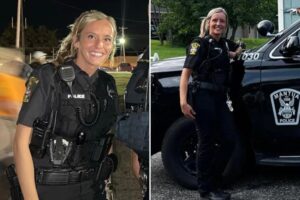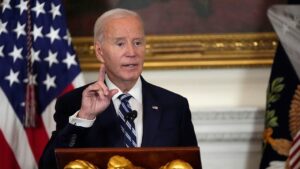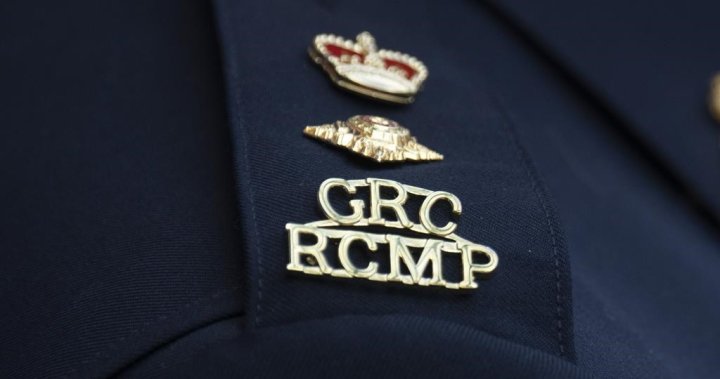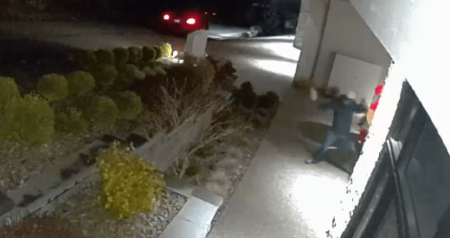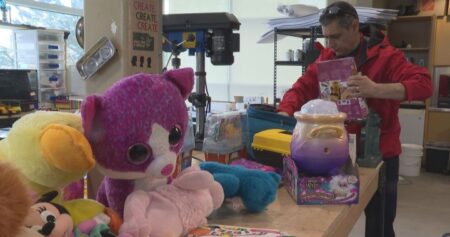The head of the RCMP unit in charge of protecting politicians says the force is ready for a looming federal election, even as it deals with an “unprecedented” level of threats against MPs and candidates.
Michelle Paradis, the RCMP assistant commissioner in charge of protective policing, says requests for protection are continuing to increase, and more members are being recruited to meet the demand. Those members are consistently being trained up on new and emerging threats at home and from abroad, with the goal of ensuring they are “constantly vigilant,” she said.
“What I want is for our officers to be trained in a way that… their head is basically on a swivel,” Paradis told Mercedes Stephenson in an interview that aired Sunday on The West Block.
“It’s not complacency. It’s about changing to meet the threat environment.”
Asked if her unit is ready for an election, which could come at any time amid political tumult in Ottawa, Paradis said a plan is already in place for when the next campaign begins.
“We know if it’s called tomorrow, we’re ready for it,” she said. “We’ve done this before.”
She said a pamphlet of personal safety information and best practices will be sent to candidates, along with who to call within the RCMP “if the hairs on the back of your neck are standing up.”

Get daily National news
Get the day’s top news, political, economic, and current affairs headlines, delivered to your inbox once a day.
Members of the RCMP will be prepared to travel to multiple cities across the country to ensure round-the-clock protection, she added.
Members of Parliament have found themselves facing increasing verbal and physical attacks and threats in public spaces, including Prime Minister Justin Trudeau and other top officials.
Paradis’ unit has been tasked not just with protecting politicians, but also high-profile figures such as Irwin Cotler, who faced an assassination threat last fall believed to be linked to Iran.
In 2019, the House of Commons’ sergeant-at-arms office opened eight files on threats against MPs. That number shot up to 530 last year.
“Whether it’s here in Canada, whether it’s online, whether it’s somebody in their basement in another country, they’re coming in at a rate that we’ve never seen,” Paradis said.
“This is an unprecedented time for us.”
Gabriel Letourneau, a threat specialist for the RCMP’s protective services unit, is the first officer tasked with profiling the people sending those threats and assessing how credible they may be.
He told Stephenson the threats that reach his desk are never considered “zero-risk.”
What raises it higher, he explained, is if the person displays specific homicidal fantasies. Suicidal ideation would also suggest the person is not afraid to die themselves when carrying out a violent threat, he added.
“They’re all bad, but some of them are way more graphic in nature, or they’re way more personal,” Letourneau said.
Paradis called the distinction “awful but lawful” versus a more direct threat of violence.
“If it reaches a stage of criminality — ‘I will kill you’ — then we will lay charges,” she said.
“If it’s, ‘I hope you get run over by a bus,’ that doesn’t reach the threshold of criminality. But it does mean that whoever that was directed towards does feel some kind of (threat). So we will go and make a door knock and say (to the person who sent the threat), ‘We’re aware of you.’ And a lot of times that’s enough to stop that.”
Letourneau said the RCMP is witnessing “a rise in ideologically motivated violence (and) extremism.”
The ideology behind those threats depends on the types of policies being pursued by the government at the time, he added, suggesting they’re not contained to either right- or left-wing politics.
Members are also being trained to adapt to threats and acts of violence that have emerged in the real world, Paradis said.
She pointed to the assassination of former Japanese prime minister Shinzo Abe, who was killed by a homemade firearm. His protective detail did not immediately respond when the gun was fired because the sound was different than a traditional firearm, she said.
“We’ve now incorporated that into our training,” she said.
Police and prosecutors in New York have said Brian Thompson, the UnitedHealthcare CEO, was killed by a “ghost gun” created with a 3D printer in an assassination in December.
As the RCMP looks to respond to the growing threat environment, Paradis said she’s committed to ensuring standards aren’t lowered as she hires and trains additional officers, with a focus on “continuous learning.”
She added she’s “always concerned” about burnout among members and that “the well-being of our members is front and centre.”
Letourneau said his job “does weigh on me” and certain cases will keep him up at night, particularly if they’re trying to catch someone before they potentially carry out a credible threat.
“Failing at doing my job properly has immense consequences,” he said.
© 2025 Global News, a division of Corus Entertainment Inc.
Read the full article here



